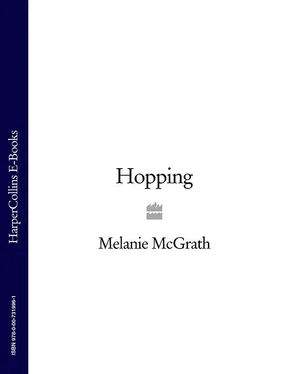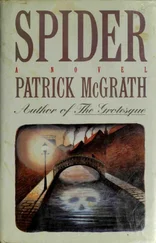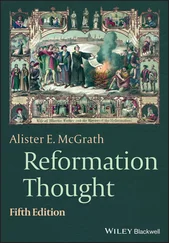At the age of twenty-one Henry married May and took her out of domestic service. In short order they had a son, Jack, then, three years later, another, Harold. Jack was handsome and reckless and got himself into trouble from an early age for petty theft and dipping. Harold was his opposite, born small with an odd, enlarged head which stayed that way as he grew. Poverty added rickets, the disease of dark, sunless places which Jack had somehow been spared. The disease gave Harold bowed legs, knocked his knees and made half his teeth fall out. Yet despite these afflictions, young Harold was a remarkably upbeat, optimistic and stoical boy, with no trace of self-pity, so unlike the noisy, blustering, self-centred Jack that it was almost as though they had come from two different broods.
Growing up, the two boys saw very little of their father. Henry left the Baker family house in Gaselee Street at six thirty every morning in order to be at the docks in time for the seven o’clock bomp-on, when he would learn whether there was work for him that day. The Great Dock Strike had been in part a response to the casual cruelty of the bomp-on system, where men would have to compete – and sometimes even physically fight – one another for an hour or two’s work. Since dock work was both unpredictable and highly seasonal, some dockers would find themselves unemployed for months with no means of keeping their families from starvation. Henry’s father had been among these, and this had made Henry a staunch union man. After the strike, the bomp-on had been modified. Dockers were now required to register, it was no longer possible for shipowners to hire a man for less than four hours, and those dockers who were attached to gangs, like Henry, had at least some protection from the ravages of a casualised labour market.
When there was no work at the docks, Henry would offer his labour on the cheap to the nearby goods station, hydraulic works, timber store or knacker’s yard. If that failed, he’d spend the day in one of the dockers’ clubs. One way or another, he was rarely back until seven in the evening, when he’d bolt down the tea May Baker had prepared for him before going out to the pub or to the bare-knuckle fights at Wonderland in Whitechapel that were his weakness.
Despite the fact that he rarely saw them, or perhaps because of it, Henry remained the most powerful presence in his sons’ lives; more powerful certainly than May, who was a bitter, silent woman; more powerful too than the railway, which thumped and ticked all night beside the house in Gaselee Street where the Baker family lived; and more powerful even than the docks themselves, which stretched out broad and filthy not a minute’s walk away, their cranes so close that Harold would lie in the bed he shared with Jack and imagine them reaching through the window and plucking him up.
From the moment they were born, it was assumed that Henry’s sons would follow him to the docks. It was a matter of familial pride that they did so. In the East End, as elsewhere, docking ran in families. It wasn’t something you did, it was something you were. In 1914, at the age of fourteen, Jack followed convention and went into the West India with his father, but by then it was already clear that Harold would never join them. Four years before, in 1910, when he was seven, Harold had suffered an accident, and ever after he walked with a pronounced swagger brought on by one leg being much longer than the other and the shorter one being calipered.
While Harold and Jack were still at school together in Union Street, Jack protected his younger brother from the worst of the teasing from his schoolmates. Jack grew up tall and well built and with a reputation for toughness and recklessness. No one wanted to mess with him. Once Jack left for the docks, at the beginning of the Great War, Harold was considered fair game. By then, most of his schoolfellows had grown used to his limp and, knowing him to be a kind and decent boy, counted themselves as among his friends, but the arrival of Albie Bluston at the school changed all that. Albie’s father had been killed during the earliest days of the war, and an elder brother returned home burned the colour of a plum. Albie had been sent to live with his aunt while his mother nursed her older son back to some semblance of a life. To Albie, a boy who had come about his injury without having to fight was nothing short of a coward, and he immediately set on Harold with the specific intention of making his life a misery. All of a sudden, boys Harold had grown up with and considered friends began to trip him up or kick him down for the pleasure of watching him struggle to right himself. When that became a bore, they set wires to trip him up or rolled marbles under his feet, stumbling alongside him in exaggerated imitation of his gait, hurling highfalutin insults, with toffee-nosed expressions on their faces.
I say, look at that blundering blunderbuss.
How outré he is.
Shall we pulverise his bony arse anon?
Still, Harold being Harold, and as generous minded a boy as you are likely to come across, he held no grudges against his former friends, nor even against Albie. He accepted what had happened and, when he thought about the accident, realised he had brought his fate down on himself.
Having no friends to speak of any more, Harold vowed to make the most of the extra time being on his own afforded him. In 1916, Henry was called up, and in his absence, the family had trouble making ends meet. To please his mother and win the favour of his father on his return (for Henry had lost interest in his younger son the moment it became clear that he would never become a docker), Harold took to spending his free time selling second-hand programmes outside the Queen’s Theatre in Poplar. Hanging around the Queen’s, he soon picked up the words and melodies to most of the popular music hall songs of the time, and he’d sometimes sing one or two favourites to keep the people in the queue entertained and make a little more money. People felt sorry for a boy in a caliper. The song that always got the best response, particularly from the women, though Harold had no idea why, was:
I like pickled onions
I like piccalilli
Pickled cabbage is all right
With a bit of cold meat on Sunday night
I can go tomatoes
But what I do prefer
Is a little bit cu- cum- cu- cum- cu- cum
Little bit of cucumber .
Aside from an occasional attack from a Gotha or a Zeppelin visit and the inconvenience to everyone of air-raid warnings and gas alerts, the East End itself remained relatively unscathed during the Great War, and the event had had none of the terrible consequences for the Bakers that it did for many East End families. As white feathers began to appear in letterboxes, Jack Baker’s colour-blindness exempted him from the call-up and Henry was quickly invalided out of service and sent back to the docks. He never spoke about his injury, but it seemed to be of little hindrance to him. In fact, Henry’s spell in the army proved positively advantageous. Having served, he was immune from accusations of shirking or cowardice and, having seen what conditions were like and witnessed desperation and guessed at the lonely intimacy of trauma, he knew exactly how to anticipate the returning soldiers’ needs and soon saw an opportunity to supply some of them.
While Harold recited his times tables and did his best to fend off Albie Bluston, Jack and Henry Baker were busy establishing a tidy business selling pilfered rum to the East End’s growing tribe of war-wounded, gassed and shell-shocked. Not everyone had the ready cash to buy their drink in pubs or the means by which to distil their own poteen, and it was to these men, men at the bottom of the pile, that Henry and Jack extended rum and credit. After all, did they not deserve a drink as much as, or even more than, the next man? Once they’d got drink on tick, the men very often wanted to borrow more money to indulge in cards or women or to gamble on the fights. Neither Jack nor Henry saw themselves as moneylenders or pawnbrokers, but they were happy enough to direct drunk men to a friendly pawnbroker for a portion of the ticket, or to a card sharp for a percentage of the bet, come to that. They usually went to freelance enforcers, though neither Jack nor Henry was above throwing a punch for a deserving cause, and by 1916, their rum and tick business was flourishing.
Читать дальше












